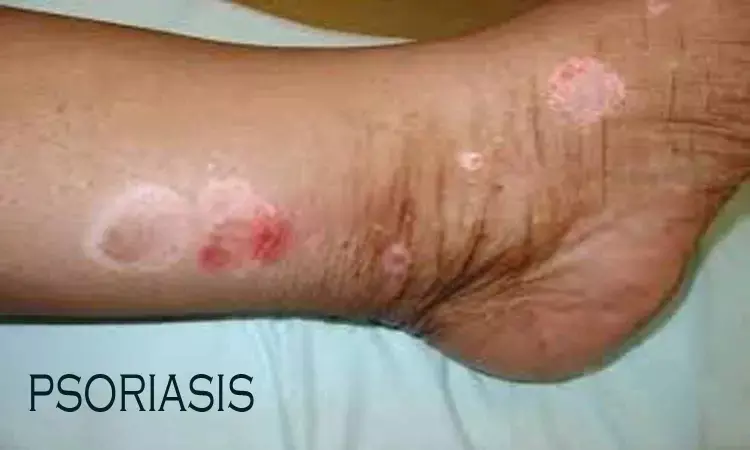- Home
- Medical news & Guidelines
- Anesthesiology
- Cardiology and CTVS
- Critical Care
- Dentistry
- Dermatology
- Diabetes and Endocrinology
- ENT
- Gastroenterology
- Medicine
- Nephrology
- Neurology
- Obstretics-Gynaecology
- Oncology
- Ophthalmology
- Orthopaedics
- Pediatrics-Neonatology
- Psychiatry
- Pulmonology
- Radiology
- Surgery
- Urology
- Laboratory Medicine
- Diet
- Nursing
- Paramedical
- Physiotherapy
- Health news
- Fact Check
- Bone Health Fact Check
- Brain Health Fact Check
- Cancer Related Fact Check
- Child Care Fact Check
- Dental and oral health fact check
- Diabetes and metabolic health fact check
- Diet and Nutrition Fact Check
- Eye and ENT Care Fact Check
- Fitness fact check
- Gut health fact check
- Heart health fact check
- Kidney health fact check
- Medical education fact check
- Men's health fact check
- Respiratory fact check
- Skin and hair care fact check
- Vaccine and Immunization fact check
- Women's health fact check
- AYUSH
- State News
- Andaman and Nicobar Islands
- Andhra Pradesh
- Arunachal Pradesh
- Assam
- Bihar
- Chandigarh
- Chattisgarh
- Dadra and Nagar Haveli
- Daman and Diu
- Delhi
- Goa
- Gujarat
- Haryana
- Himachal Pradesh
- Jammu & Kashmir
- Jharkhand
- Karnataka
- Kerala
- Ladakh
- Lakshadweep
- Madhya Pradesh
- Maharashtra
- Manipur
- Meghalaya
- Mizoram
- Nagaland
- Odisha
- Puducherry
- Punjab
- Rajasthan
- Sikkim
- Tamil Nadu
- Telangana
- Tripura
- Uttar Pradesh
- Uttrakhand
- West Bengal
- Medical Education
- Industry
Topical roflumilast improves chronic plaque psoriasis, finds new research

Researchers at the Icahn School of Medicine report that roflumilast cream (ARQ-151), which contains a highly potent, selective phosphodiesterase-4 (PDE4) inhibitor demonstrated significant improvements in patients with psoriasis signs and symptoms in as early as two weeks.
The phase 2b trial results showed that when patients with plaque psoriasis applied topical roflumilast once-daily they reported clear skin as well as improvement in itch and burden of disease. The results of the paper were published online today in the New England Journal of Medicine.
According to Mark Lebwohl, MD, Waldman Professor and Chair of Dermatology at the Icahn School of Medicine at Mount Sinai, and lead investigator of the study, the results are particularly encouraging for patients who need new and better options to treat this chronic skin disease. "Plaque psoriasis imposes a significant burden on patients, and is often associated with poor quality of life," said Dr. Lebwohl. "Effectively treating psoriasis with topical therapies, which the vast majority of patients receive, is especially challenging due to side effects, tolerability, or efficacy of existing topical treatments. Roflumilast cream could really be a game changer."
Roflumilast which contains PDE4, an intracellular enzyme that regulates pro-inflammatory and anti-inflammatory cytokine production and cell proliferation has been implicated in a wide range of inflammatory diseases, and approved by the U.S. Food and Drug Administration for the treatment of chronic obstructive pulmonary disease (COPD) in 2011.
In the double-blinded trial, a total of 331 adults with plaque psoriasis were randomly assigned in a 1:1:1 ratio to receive topical treatment with roflumilast cream 0.3%, 0.15%, or matching treatment applied once daily for 12 weeks. A total of 109 patients were treated with roflumilast cream 0.3%, 113 with 0.15% cream, and 109 with the matching treatment. The primary efficacy outcome was investigator global assessment (IGA, a five-item scale assessing plaque thickening, scaling, and erythema, ranging from 0, clear, to 4, severe) of clear or almost clear at week six. Secondary outcomes included clear or almost clear plus a two-grade improvement (IGA success), IGA success on an intertriginous IGA, and change in psoriasis area and severity index (PASI).
Psoriasis is an immune disease that occurs in about two percent of adults in Western countries. About 90 percent of psoriasis cases are plaque psoriasis, which is characterized by "plaques," or raised red areas of skin covered with a silver or white layer of scale. Psoriatic plaques can appear on any area of the body, but most often appear on the scalp, knees, elbows, trunk, and limbs, and the plaques are often itchy and sometimes painful. Plaques in certain anatomical areas present particular treatment challenges, including the face, elbows, knees, scalp, and other areas of the skin that may touch or rub together.
"The results from this phase 2b study data provide further evidence of the potential of roflumilast cream as a once-daily treatment for patients with plaque psoriasis who currently lack suitable treatment options," said Howard Welgus, MD, Chief Medical Officer at Arcutis, the biopharmaceutical company, which funded and co-authored the study. "We are pleased to share these results, which suggest topical roflumilast was well tolerated and efficacious, with the broader scientific community."
Mount Sinai is currently conducting phase 3 clinical studies with the drug.
Dr Kamal Kant Kohli-MBBS, DTCD- a chest specialist with more than 30 years of practice and a flair for writing clinical articles, Dr Kamal Kant Kohli joined Medical Dialogues as a Chief Editor of Medical News. Besides writing articles, as an editor, he proofreads and verifies all the medical content published on Medical Dialogues including those coming from journals, studies,medical conferences,guidelines etc. Email: drkohli@medicaldialogues.in. Contact no. 011-43720751


